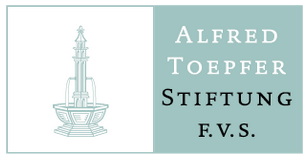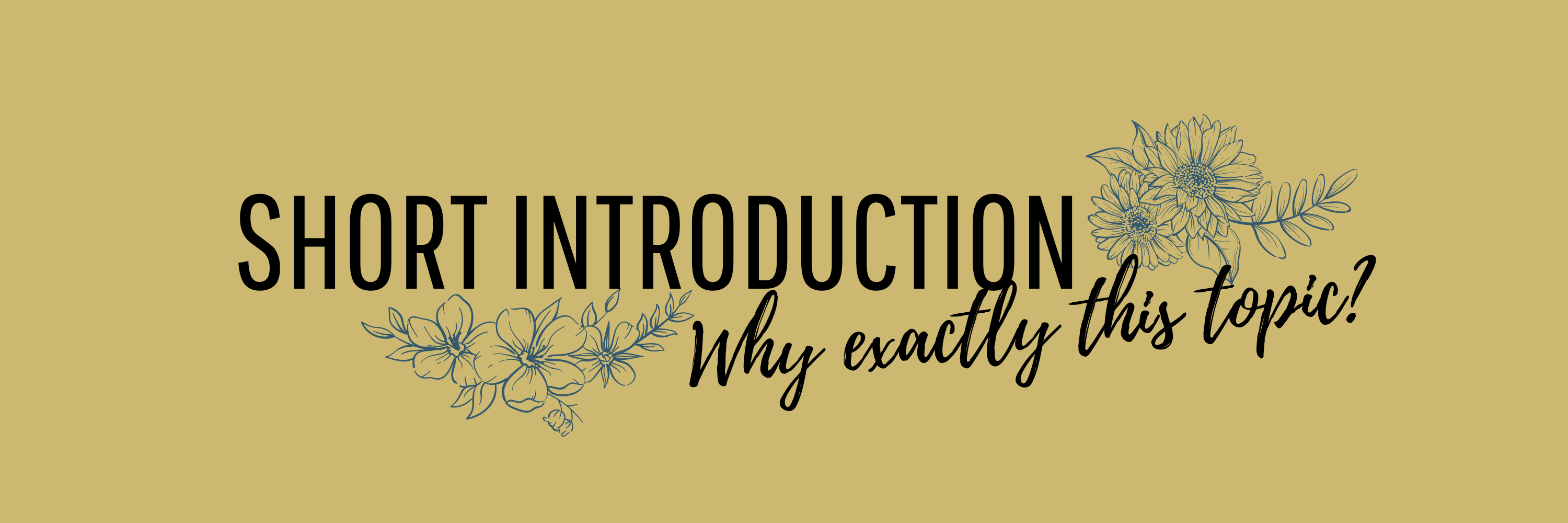
All modern states have periods of what we call difficult history, the heritage that still lives in our minds in the present and usually leads to fundamental disagreements over who we are as a society and what values we hold. With the ongoing full-scale war in Ukraine, which is not only a tragedy and difficult history but also a nation-shaping experience, one of the central topics of our project is the concept of difficult history. We are eager to talk about the concept itself, examples of difficult history and memorisation practices in different countries, ways in which everyone is influenced by this past, and most importantly how to process this productively.
A difficult history may be the basis, but we also want to show what possibilities there are to actively participate in the future. Especially in times of war, cohesion and civic participation are unthinkable.
Join our online and offline events to learn more and exchange some ideas!

“We all heard that it is important to know one’s history, but why it is imperative for a nation to recognise and take responsibility for its difficult past and ways of memorising it? Well, every wound must be healed, and every trauma must be worked with, and the same goes for historical traumas.”
Our offline events and one of the online evens will cover the topic of difficult history. Although the knowledge of historical events are important in order to discuss the topic in depth, we don’t want to give anyone a history lesson but rather an understanding of what difficult history is about and how it influences us today.
Read about the definition of difficult history and which consequences an unproceed history can have in Anna’s introductionary article:

It is impossible to say exactly how the discussion will proceed offline or online, it depends entirely on the participants and the direction they want to take the topic. We can only give the rough structure of the event and formulate a few questions that describe our topic a little better.
The discussion about difficult history and civic participation will take around 1,5h. We will introduce the topic at the beginning and will have an expert on the topic with us who can lead through the discussion. Afterwards we’ll try to come up together with a summary and some ideas for a better future.
The input of the discussion will be selected and in a summarized way sent to the EU Parliament. Your voice won’t be overheard!
Some questions about the topic could be:
How does a difficult history influence me on every level of daily life?
Why is civic participation important and which form can it take?
How to persuade yourself that there are possibilities to engage and change something?
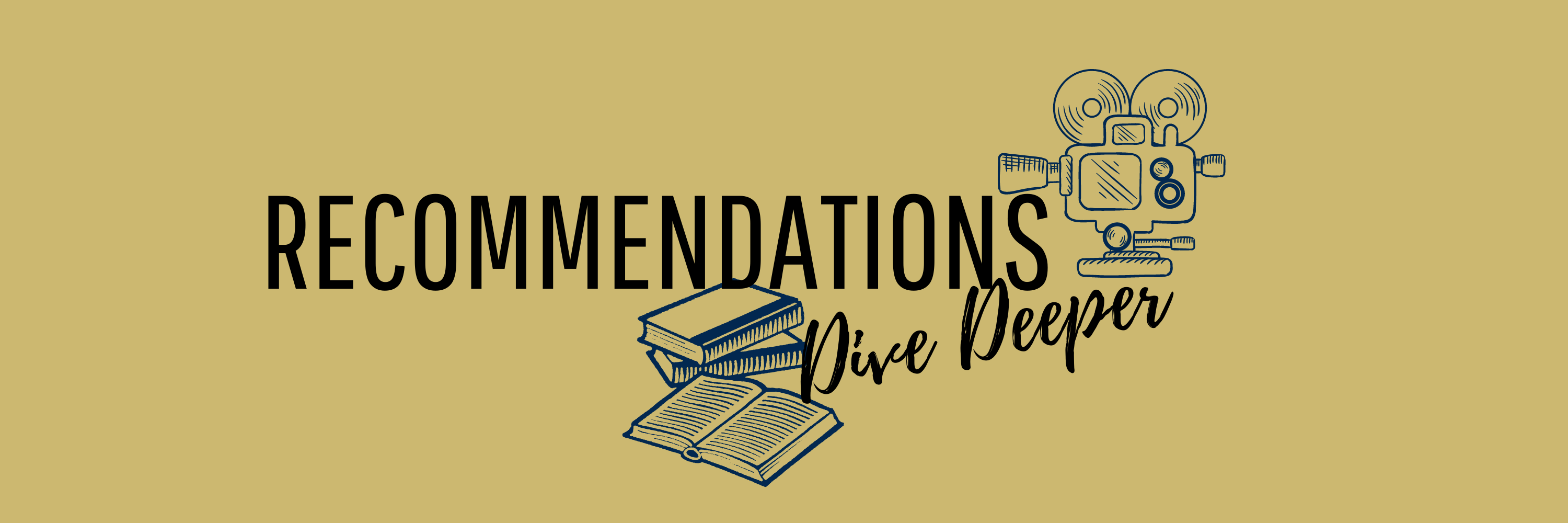
Books
- “The gates of Europe”, Sergii Plokhy:
The author examines Ukraine’s search for its identity through the lives of major Ukrainian historical figures, from its heroes to its conquerors
- “Bloodlands: Europe Between Hitler and Stalin”, “The Road to Unfreedom”, Timothy Snyder:
The first book covers mass murders during Second World War, in particular, in the USSR, which is crucial for understanding the background and dreadfulness of the current splash of pro-Stalin views. The second explores Putin’s attempts to influence democracy and those who influence Putin.
- “Ukraine and Russia: From Civilized Divorce to Uncivil War”, Paul D’Anieri:
The book by a political scientist on the inevitability of war, the importance of Ukraine and the differences in political development between the two countries
- “What Everyone Needs to Know”, Serhii Yekelchyk:
Especially important during the hybrid war of disinformation, false narratives and distortion of history
- “Ukraine in Histories and Stories: Essays by Ukrainian Intellectuals”, Peter Pomerantsev:
The book is about the Ukrainian cultural scene, the collection of stories about Ukraine, stereotypes, mythology, history and literature
- “The Orphanage”, Serhiy Zhadan:
“The novel is a kind of explanation of this blurred identity that is neither here nor there and which, of course, opens up all these possibilities for manipulation”, Sergii Plokhy. The story of a man trying to save his nephew who got stuck in an orphanage.
Movies
- “Winter on Fire” (NOT Ukraine on Fire, which is a handbook of Russian propaganda), documentary, director Evgeny Afineevsky, 2015
Available on Netflix, the actual footages give the understanding of the true reasons and chronology of the Revolution of Dignity.
- “Cyborgs”, drama, director Akhtem Seitablayev, 2017
The depiction of 242 days of the heroic defence of Donetsk Airport; the Ukrainian army endured, the walls didn’t.
- “No Obvious Signs”, documentary, director Alina Gorlova, 2018
A story of a woman with PTSD in Ukraine.
- “War Note”, found footage, director Roman Lyubiy, 2021
Composed of footage of Ukrainian soldiers, the film immerses a viewer in the reality of the war in Ukraine that started in 2014.
- “The Cacophony of the Donbas”, documentary, director Igor Minaiev, 2018
A true story about myths surrounding Donbas, Russian and soviet propaganda
- “The Earth Is Blue like an Orange”, documentary, director Iryna Tsilyk, 2020
It shows life in a so-called “red zone” in Kranohorivka, Donetsk region.
- “Haytarma”, drama, director Akhtem Seitablayev, 2013
The heartbreaking deportation of Crimean Tatars was one of many similar attempts of Stalin to destroy multiple nationalities in the USSR.
- “East/West”, drama, director Régis Wargnier, 1999
A real-life story of the terror towards intellectuals who emigrated to Europe from the USSR and returned to their motherland, soviet Ukraine, believing Stalin’s calls for help in rebuilding the country.

All modern states have periods of what we call difficult history, the heritage that still lives in our minds in the present and usually leads to fundamental disagreements over who we are as a society and what values we hold. With the ongoing full-scale war in Ukraine, which is not only a tragedy and difficult history but also a nation-shaping experience, one of the central topics of our project is the concept of difficult history. We are eager to talk about the concept itself, examples of difficult history and memorisation practices in different countries, ways in which everyone is influenced by this past, and most importantly how to process this productively.
A difficult history may be the basis, but we also want to show what possibilities there are to actively participate in the future. Especially in times of war, cohesion and civic participation are unthinkable.
Join our online and offline events to learn more and exchange some ideas!

It is impossible to say exactly how the discussion will proceed offline or online, it depends entirely on the participants and the direction they want to take the topic. We can only give the rough structure of the event and formulate a few questions that describe our topic a little better.
The discussion about difficult history and civic participation will take around 1,5h. We will introduce the topic at the beginning and will have an expert on the topic with us who can lead through the discussion. Afterwards we’ll try to come up together with a summary and some ideas for a better future.
The input of the discussion will be selected and in a summarized way sent to the EU Parliament. Your voice won’t be overheard!
Some questions about the topic could be:
How does a difficult history influence me on every level of daily life?
Why is civic participation important and which form can it take?
How to persuade yourself that there are possibilities to engage and change something?

“We all heard that it is important to know one’s history, but why it is imperative for a nation to recognise and take responsibility for its difficult past and ways of memorising it? Well, every wound must be healed, and every trauma must be worked with, and the same goes for historical traumas.”
Our offline events and one of the online evens will cover the topic of difficult history. Although the knowledge of historical events are important in order to discuss the topic in depth, we don’t want to give anyone a history lesson but rather an understanding of what difficult history is about and how it influences us today.
Read about the definition of difficult history and which consequences an unproceed history can have in Anna’s introductionary article:

All modern states have periods of what we call difficult history, the heritage that still lives in our minds in the present and usually leads to fundamental disagreements over who we are as a society and what values we hold. With the ongoing full-scale war in Ukraine, which is not only a tragedy and difficult history but also a nation-shaping experience, one of the central topics of our project is the concept of difficult history. We are eager to talk about the concept itself, examples of difficult history and memorisation practices in different countries, ways in which everyone is influenced by this past, and most importantly how to process this productively.
A difficult history may be the basis, but we also want to show what possibilities there are to actively participate in the future. Especially in times of war, cohesion and civic participation are unthinkable.
Join our online and offline events to learn more and exchange some ideas!

“We all heard that it is important to know one’s history, but why it is imperative for a nation to recognise and take responsibility for its difficult past and ways of memorising it? Well, every wound must be healed, and every trauma must be worked with, and the same goes for historical traumas.”
Our offline events and one of the online evens will cover the topic of difficult history. Although the knowledge of historical events are important in order to discuss the topic in depth, we don’t want to give anyone a history lesson but rather an understanding of what difficult history is about and how it influences us today.
Read about the definition of difficult history and which consequences an unproceed history can have in Anna’s introductionary article:

All modern states have periods of what we call difficult history, the heritage that still lives in our minds in the present and usually leads to fundamental disagreements over who we are as a society and what values we hold. With the ongoing full-scale war in Ukraine, which is not only a tragedy and difficult history but also a nation-shaping experience, one of the central topics of our project is the concept of difficult history. We are eager to talk about the concept itself, examples of difficult history and memorisation practices in different countries, ways in which everyone is influenced by this past, and most importantly how to process this productively.
A difficult history may be the basis, but we also want to show what possibilities there are to actively participate in the future. Especially in times of war, cohesion and civic participation are unthinkable.
Join our online and offline events to learn more and exchange some ideas!

Books
- “The gates of Europe”, Sergii Plokhy:
The author examines Ukraine’s search for its identity through the lives of major Ukrainian historical figures, from its heroes to its conquerors
- “Bloodlands: Europe Between Hitler and Stalin”, “The Road to Unfreedom”, Timothy Snyder:
The first book covers mass murders during Second World War, in particular, in the USSR, which is crucial for understanding the background and dreadfulness of the current splash of pro-Stalin views. The second explores Putin’s attempts to influence democracy and those who influence Putin.
- “Ukraine and Russia: From Civilized Divorce to Uncivil War”, Paul D’Anieri:
The book by a political scientist on the inevitability of war, the importance of Ukraine and the differences in political development between the two countries
- “What Everyone Needs to Know”, Serhii Yekelchyk:
Especially important during the hybrid war of disinformation, false narratives and distortion of history
- “Ukraine in Histories and Stories: Essays by Ukrainian Intellectuals”, Peter Pomerantsev:
The book is about the Ukrainian cultural scene, the collection of stories about Ukraine, stereotypes, mythology, history and literature
- “The Orphanage”, Serhiy Zhadan:
“The novel is a kind of explanation of this blurred identity that is neither here nor there and which, of course, opens up all these possibilities for manipulation”, Sergii Plokhy. The story of a man trying to save his nephew who got stuck in an orphanage.
Movies
- “Winter on Fire” (NOT Ukraine on Fire, which is a handbook of Russian propaganda), documentary, director Evgeny Afineevsky, 2015
Available on Netflix, the actual footages give the understanding of the true reasons and chronology of the Revolution of Dignity.
- “Cyborgs”, drama, director Akhtem Seitablayev, 2017
The depiction of 242 days of the heroic defence of Donetsk Airport; the Ukrainian army endured, the walls didn’t.
- “No Obvious Signs”, documentary, director Alina Gorlova, 2018
A story of a woman with PTSD in Ukraine.
- “War Note”, found footage, director Roman Lyubiy, 2021
Composed of footage of Ukrainian soldiers, the film immerses a viewer in the reality of the war in Ukraine that started in 2014.
- “The Cacophony of the Donbas”, documentary, director Igor Minaiev, 2018
A true story about myths surrounding Donbas, Russian and soviet propaganda
- “The Earth Is Blue like an Orange”, documentary, director Iryna Tsilyk, 2020
It shows life in a so-called “red zone” in Kranohorivka, Donetsk region.
- “Haytarma”, drama, director Akhtem Seitablayev, 2013
The heartbreaking deportation of Crimean Tatars was one of many similar attempts of Stalin to destroy multiple nationalities in the USSR.
- “East/West”, drama, director Régis Wargnier, 1999
A real-life story of the terror towards intellectuals who emigrated to Europe from the USSR and returned to their motherland, soviet Ukraine, believing Stalin’s calls for help in rebuilding the country.

Books
- “The gates of Europe”, Sergii Plokhy:
The author examines Ukraine’s search for its identity through the lives of major Ukrainian historical figures, from its heroes to its conquerors
- “Bloodlands: Europe Between Hitler and Stalin”, “The Road to Unfreedom”, Timothy Snyder:
The first book covers mass murders during Second World War, in particular, in the USSR, which is crucial for understanding the background and dreadfulness of the current splash of pro-Stalin views. The second explores Putin’s attempts to influence democracy and those who influence Putin.
- “Ukraine and Russia: From Civilized Divorce to Uncivil War”, Paul D’Anieri:
The book by a political scientist on the inevitability of war, the importance of Ukraine and the differences in political development between the two countries
- “What Everyone Needs to Know”, Serhii Yekelchyk:
Especially important during the hybrid war of disinformation, false narratives and distortion of history
- “Ukraine in Histories and Stories: Essays by Ukrainian Intellectuals”, Peter Pomerantsev:
The book is about the Ukrainian cultural scene, the collection of stories about Ukraine, stereotypes, mythology, history and literature
- “The Orphanage”, Serhiy Zhadan:
“The novel is a kind of explanation of this blurred identity that is neither here nor there and which, of course, opens up all these possibilities for manipulation”, Sergii Plokhy. The story of a man trying to save his nephew who got stuck in an orphanage.
Movies
- “Winter on Fire” (NOT Ukraine on Fire, which is a handbook of Russian propaganda), documentary, director Evgeny Afineevsky, 2015
Available on Netflix, the actual footages give the understanding of the true reasons and chronology of the Revolution of Dignity.
- “Cyborgs”, drama, director Akhtem Seitablayev, 2017
The depiction of 242 days of the heroic defence of Donetsk Airport; the Ukrainian army endured, the walls didn’t.
- “No Obvious Signs”, documentary, director Alina Gorlova, 2018
A story of a woman with PTSD in Ukraine.
- “War Note”, found footage, director Roman Lyubiy, 2021
Composed of footage of Ukrainian soldiers, the film immerses a viewer in the reality of the war in Ukraine that started in 2014.
- “The Cacophony of the Donbas”, documentary, director Igor Minaiev, 2018
A true story about myths surrounding Donbas, Russian and soviet propaganda
- “The Earth Is Blue like an Orange”, documentary, director Iryna Tsilyk, 2020
It shows life in a so-called “red zone” in Kranohorivka, Donetsk region.
- “Haytarma”, drama, director Akhtem Seitablayev, 2013
The heartbreaking deportation of Crimean Tatars was one of many similar attempts of Stalin to destroy multiple nationalities in the USSR.
- “East/West”, drama, director Régis Wargnier, 1999
A real-life story of the terror towards intellectuals who emigrated to Europe from the USSR and returned to their motherland, soviet Ukraine, believing Stalin’s calls for help in rebuilding the country.

“With the project, I want to experience perspectives on European values and the cohesion between Europe and Ukraine. I want to support the Ukrainian community as best I can and I’m already excited to exchange ideas with inspiring people in person.”
“I am eager to create a safe space for people to share their thoughts on our topics in the context of war. For me, it is important to bring the topic of environmental sustainability for a discussion.”
“I see this project as a great opportunity to create awareness regarding some non-obvious but still relevant topics and to help our Ukrainian society recover from this war.”
“My wishes for the project are to create an exchange and learn about language and culture. With the ongoing war, it is all the more important to give the possibility to understand and ask.”
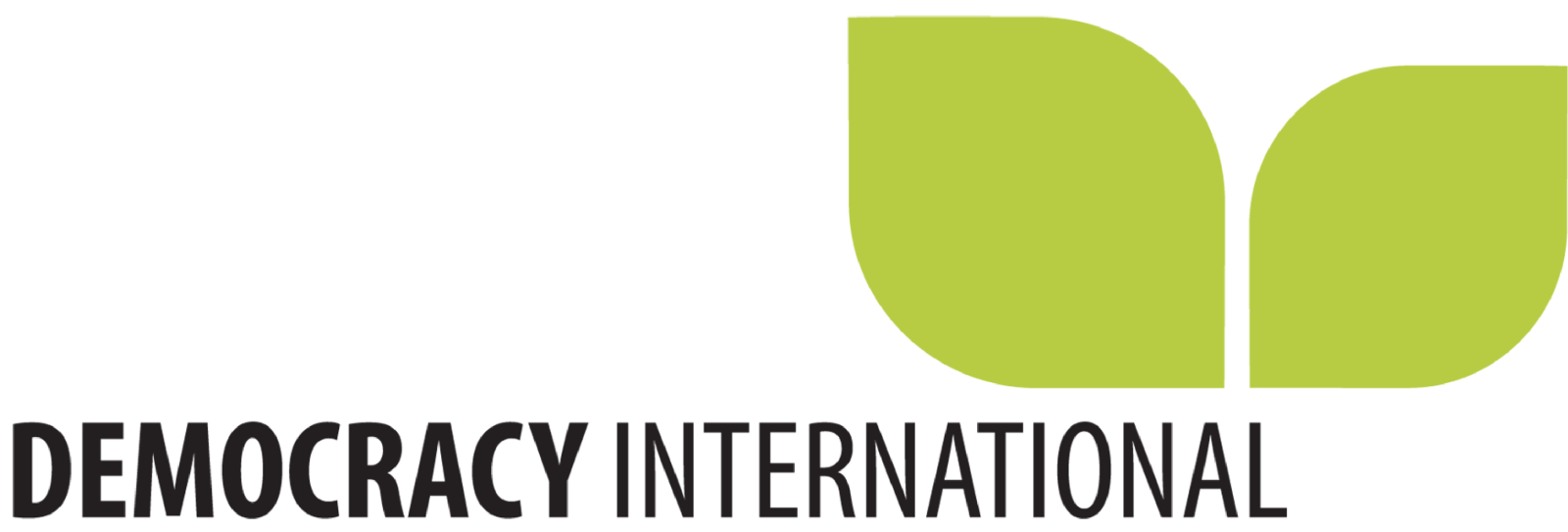

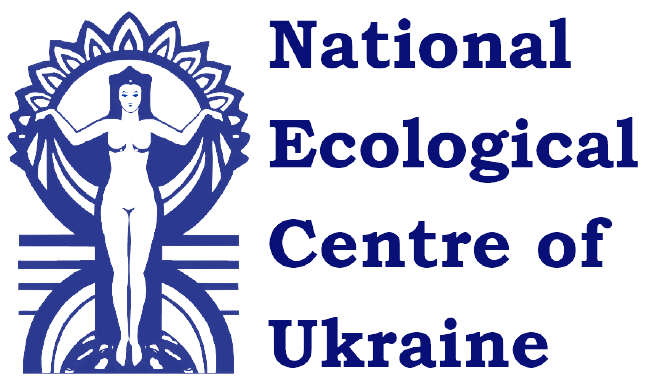
Supported by
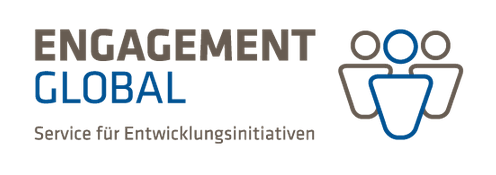
with funds from

and
